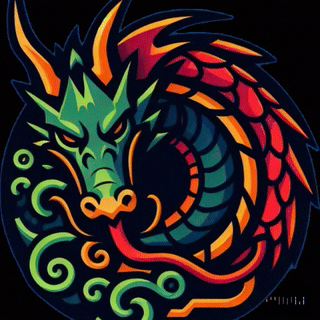Let's keep floating down the Nile of mythology—this time, toward something a little quieter, more delicate, but deeply powerful. Now we’re meeting a goddess who didn’t need thunder or war cries to be worshiped. All she needed was one simple, perfect thing: a feather.
Part 10: Ma’at – The Feather of Truth
Okay, let’s slow things down for a minute. We’ve met gods of chaos, war, storms, death, and magic. Big personalities, loud myths, dramatic stories. But now, we step into a different kind of energy—calm, clear, balanced.
Ma’at isn’t about flash. She’s about truth. Order. Balance. Justice. Harmony. Basically, she’s the glue holding everything together.
In a world of gods who bicker and throw thunderbolts and hatch wild revenge plots, Ma’at is the one who quietly says, “No. That’s not how things are supposed to be.” And everyone—everyone—listens.
The Goddess Who Kept the Universe in Check
Ma’at isn’t just a goddess. She’s a concept, a principle, a cosmic law.
She represents the right way of doing things—not just legally, but ethically, morally, naturally. Egyptians believed that the entire universe was built on Ma’at. Not the way gravity holds planets in place, but the way truth keeps chaos away. If Ma’at wasn’t upheld? The world would unravel.
No pressure, right?
She’s often shown as a graceful woman with an ostrich feather on her head. Sometimes, she is the feather. That single, delicate plume is her symbol—and yet, it holds more weight (pun intended) than any sword or scepter.
Ma’at and the Afterlife: The Heart Test
We’ve talked about this scene before, but it deserves a spotlight here—because it’s Ma’at’s moment.
Picture this: you’re standing in the Hall of Judgment in the afterlife. Your soul’s journey through the underworld has brought you here. Osiris sits on his throne. Thoth is ready to write. Anubis is beside you. And there’s a scale, waiting.
On one side? Your heart. Not metaphorically—literally. The Egyptians believed your heart held your memories, thoughts, intentions, everything that made you... you.
On the other side of the scale? Ma’at’s feather. A single, weightless truth.
If your heart is lighter than the feather—meaning you lived in accordance with Ma’at, with honesty, fairness, and integrity—you’re good to go. Welcome to paradise.
If your heart is heavier? CHOMP. Ammit, the soul-devouring beast, gets to erase you from existence.
No appeals. No bribes. Just truth.
It wasn’t about perfection. Nobody was perfect. But if you lied, cheated, stole, betrayed, or let greed guide your life? That would weigh you down.
Honestly, it's kind of beautiful. This idea that the ultimate judgment of a human being came down to how true and balanced their life was—not how rich they were, or who they knew.
Ma’at in Daily Life
But Ma’at wasn’t just about the afterlife. She was supposed to be practiced every single day.
Pharaohs were expected to uphold Ma’at in all they did. That was literally part of their job description: to keep balance between people, gods, nature, and the state. Without Ma’at, the Nile wouldn’t flood properly, crops wouldn’t grow, and the heavens might fall into chaos. Serious stakes.
When judges made rulings in court, they were said to be "speaking Ma’at." Even regular folks tried to live according to her principles—being fair to their neighbors, giving honest weight at the market, respecting the natural order.
Living in Ma’at meant you weren’t just obeying rules—you were helping hold the world together.
The Flip Side: Isfet (Chaos)
Where there’s order, there’s also the threat of chaos—and in Egyptian mythology, chaos has a name: Isfet.
Isfet is the opposite of Ma’at. It’s lies, injustice, greed, cruelty, corruption, imbalance. Not some horned demon, but more like an unraveling of reality. Think of it like pulling a loose thread and watching your sweater fall apart.
The daily battle between Ma’at and Isfet wasn’t just mythological—it was personal. Every choice you made either leaned toward balance or chaos. That was the Egyptian view of morality: not just “right” or “wrong,” but Does this choice preserve harmony, or disturb it?
Even the sun god Ra had to fight Isfet. Every night, he battled the chaos serpent Apophis to make sure Ma’at could reign another day.
Ma’at: Small Symbol, Big Power
Ma’at isn’t dramatic. She doesn’t throw fireballs or summon armies. She doesn’t scream or shout. But she is everywhere—in the breath of justice, in the silence between stars, in the steady heartbeat of the universe.
She’s the balance that keeps the Nile flowing, the stars turning, the gods behaving (well, mostly), and the souls of humans light enough to rise to the afterlife.
And honestly? We could all use a little Ma’at in our lives today.
Living with kindness, fairness, truth, and balance might not make headlines. But in the ancient Egyptian view? It made you worthy of eternity.
Next up: Part 11: The Book of the Dead – Spells, Scrolls, and Sacred Journeys, where we flip through the ultimate ancient cheat sheet for surviving the afterlife—filled with magic words, divine maps, and a whole lot of soul-saving advice. 📖✨
480-366-3550 (Domain Sales)
© SDBEST LLC, 2025. All rights reserved.
Sponsorship Disclosure
Terms of Service
